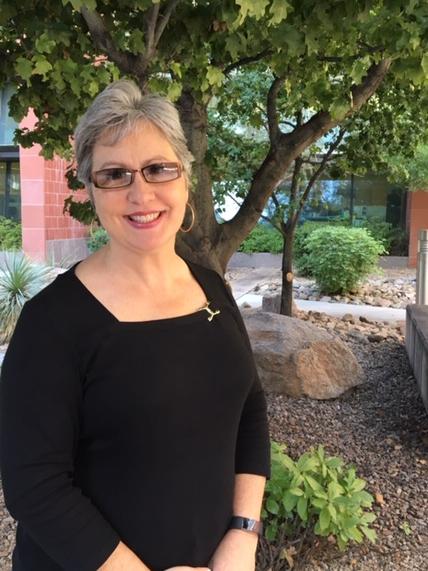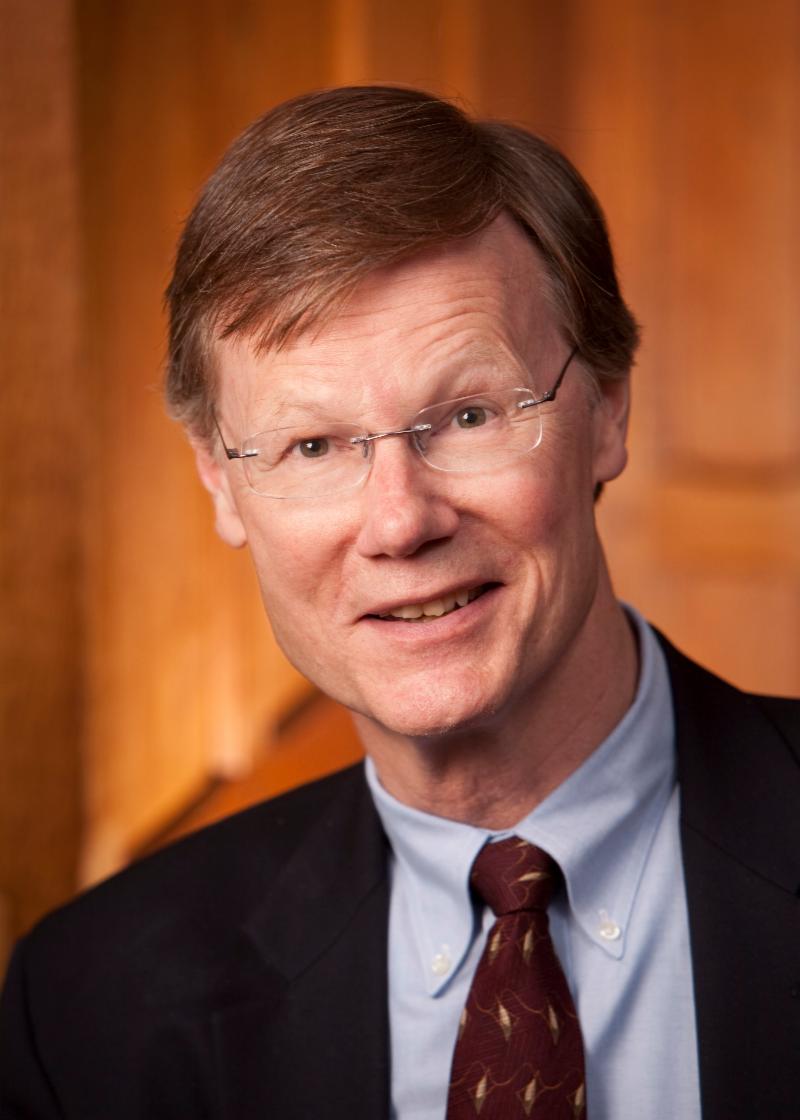 |
Greetings,
In this edition of Letter of the Law, we introduce you to student
Marliza Rivera
, who recently was awarded a Valdemar A. Cordova ('50) Scholarship through the Los Abogados Hispanic Bar Association.
This year's Soll Lecture will be delivered by
Stephen Bright
, an expert in human rights and capital punishment
. He'll speak on "Race, Poverty and Death: The Triumph of Law Over Justice in the Criminal Courts." Register for this free event here.
Remember, there's always a chance to engage with Arizona Law right around the bend, and you are always welcome to join us at these and other great on-campus events and discussions.
Until the footnotes,
Marc
|
|
|
Meet Cordova Scholar Marliza Rivera (3L)
|
 Marliza Rivera says that although she enrolled in Arizona Law's JD program later in life than some, her journey toward law school began over 40 years ago. Marliza Rivera says that although she enrolled in Arizona Law's JD program later in life than some, her journey toward law school began over 40 years ago.
She is an enrolled member of the Kiowa Tribe of Oklahoma and also Chicana (Mexican-American), and was born and raised in Chicago in the 1960s.
Her
main areas of interest are immigration, tribal law, and civil rights, and she was recently awarded a Valdemar A. Cordova ('50) Scholarship through Los Abogados.
"Because of the Cordova Scholarship, I was able to take a full-time class schedule and an externship over the summer. As a result, I am now scheduled to graduate a semester early with my JD and start my LLM in the spring."
Marliza is a member of the Latino Law Students Association (LLSA), the Native American Law Students Association (NALSA), the Immigration Law Students Association, and the Law Women's Association. She took the Pascua Yaqui Bar and was admitted to practice last spring. She is now serving as Assistant Special Prosecutor and will participate in an externship in the Public Defender's Office at Pascua Yaqui next spring, during her LLM study. She intends to develop her own practice focused on immigration, tribal law, and civil rights.
Marliza describes her lengthy path to law school, beginning in Chicago:
"Growing up in the inner-city of Chicago, fraught with drugs, gang violence, abuse by police and politicians, and a lack of resources, I was motivated to stand-up for the marginalized and use my voice to speak for my neighbors, many of whom were immigrants and scared of a system that threatened their families and their livelihoods. This led me to join the law club in high school."
Her family could not afford college, so Marliza joined the military at age 17.
"I spent the next 12 years in the Army but I always returned home and felt even stronger about the need for more advocacy in our Latino communities. The activist in me could not ignore the need for social justice, immigration reform, and Indigenous rights and sovereignty."
Returning to Chicago, Marliza says she became a single parent to her two children and took in five other children, heightening her awareness of the disparities in the barrio.
Marliza worked several jobs and put her education on the backburner. She took a few classes when she could afford to and managed to move up into some great careers and experiences in the corporate world, the federal government, and tribal social services. Each career step, she says, was a means to an end -- taking care of her children.
But she still thought about law school.
"Throughout the years I felt that no matter how much effort I exerted in activism, protesting, boycotting, and picketing, I would never accomplish as much as I could if I had the credentials to use the laws and legal skills to fight for justice and the underserved."
In 2008, Marliza brought some of her children to Arizona so that they could attend the University of Arizona, where they graduated. Her youngest son eventually went on to UA Medical School. At the end of his first year of med school, in 2016, he told Marliza that he and the other children no longer needed her financial assistance and suggested that she finally pursue her law school dream.
"It was the first time in decades that I actually thought it was a possibility to fulfill my youthful aspirations. He didn't have to say it twice. I took a leap of faith, despite my insecurities and fear of going back to school at the age of 51. It's the best decision I ever made. I have been given a great gift -- to serve my communities with the skills and education I have received here."
|
 |
Darrow K. Soll Memorial Criminal Law and Justice Lecture
 Human rights and capital punishment expert
Stephen Bright will be the guest speaker at the 11th annual Darrow K. Soll Memorial Criminal Law and Justice Lecture.
The title of his talk is,
"Race, Poverty and Death: The Triumph of Law Over Justice in the Criminal Courts."
Bright is known nationally for his litigation, teaching and writing on capital punishment, legal representation for poor people accused of crimes, conditions and practices in prisons and jails, racial discrimination in the criminal justice system, judicial independence, and sentencing.
The Soll Lecture is made possible through the generosity of alumna
Jennifer Woods ('99).
When: Wednesday, Nov. 14, 2018, noon-1:15 p.m.
Where: The University of Arizona James E. Rogers College of Law, 1201 E. Speedway Blvd., Room 164.
More About Stephen Bright
Stephen B. Bright is Professor of Practice at the Georgia State College of Law and teaches at Yale and Georgetown law schools.
He has tried capital cases before juries in Alabama, Georgia and Mississippi, and argued cases before state and federal appellate courts in the South. He has argued four cases before the United States Supreme Court. The Court held that there was racial discrimination in the selection of juries in three of the cases and, in the fourth, that a defendant with was denied the assistance of a mental health expert at his capital trial in Alabama in violation of the Constitution.
He spent 35 years with the Southern Center for Human Rights, first as director and then as president and senior counsel. Subjects of his litigation, teaching, and writing include capital punishment, legal representation for poor people accused of crimes, racial discrimination in the criminal justice system, conditions and practices in prisons and jails, judicial independence, and sentencing.
He received the American Bar Association's Thurgood Marshall Award in 1998. The
Daily Law Report, Georgia's legal newspaper, named him "Newsmaker of the Year" in 2003 for his contribution to bringing about creation of a public defender system in Georgia, and "Lawyer of the Year" in 2017 for his success in challenging racial discrimination before the Supreme Court. His curriculum vitae and publications are available
here.
|
Arizona Supreme Court and Clerks Visit Arizona Law
As part of its ongoing public education effort, on Tuesday, Nov. 6, 2018, the Arizona Supreme Court heard arguments at the College of Law in two cases: Saban Rent-A-Car v. ADOR and Crosby-Garbotz v. Fell (State).
The room was packed with students and practitioners, who got to hear interesting cases, superb advocacy, and an active bench. The Supreme Court case materials and oral arguments are
archived for viewing here.
In conjunction with the visit, Arizona Supreme Court clerks answered questions from Arizona Law students over lunch (below).
This court's visit was hosted by the William H. Rehnquist Center at the James E. Rogers College of Law.
|
KJZZ, discussion with professor David Gantz
Arizona Public Media/Arizona 360, discussion with professor Kristine Huskey
What Great Law Schools Do
|
ASU regained the Jenckes Cup last year after a long drought (from their perspective). Come watch the competition to see if justice comes home.
As always, and with apologies to your local coffee shop, we hope your COL is your second home -- or at least where you go for a good dose of ideas, discussion, and energy about law.
|
|
| |
|
 |
|